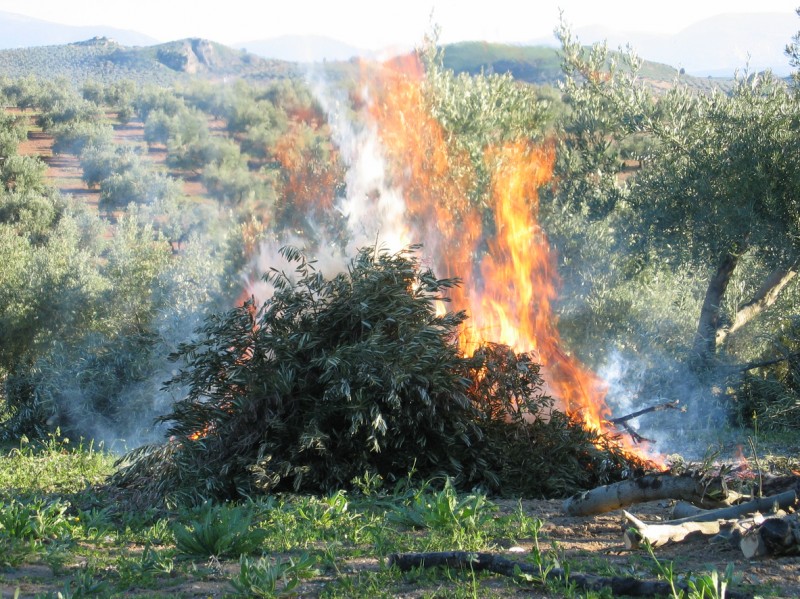

Guidelines for submitting articles to Mazarron Murcia
Hello, and thank you for choosing Mazarron Murcia to publicise your organisation’s info or event.
Mazarron Murcia is a website set up by Murcia Today specifically for residents of the urbanisation in Southwest Murcia, providing news and information on what’s happening in the local area, which is the largest English-speaking expat area in the Region of Murcia.
When submitting text to be included on Mazarron Murcia, please abide by the following guidelines so we can upload your article as swiftly as possible:
Send an email to editor@spaintodayonline.com or contact@murciatoday.com
Attach the information in a Word Document or Google Doc
Include all relevant points, including:
Who is the organisation running the event?
Where is it happening?
When?
How much does it cost?
Is it necessary to book beforehand, or can people just show up on the day?
…but try not to exceed 300 words
Also attach a photo to illustrate your article, no more than 100kb

Bonfire licences and disposing of garden rubbish in the Region of Murcia
Regional laws prohibit the lighting of bonfires in urban areas
For expats moving to Spain one of the aspects of rules and regulations which it is very difficult to learn about is the issue of bonfires, and in the Region of Murcia there is a body of legislation regarding the topic which reflects both environmental concerns and the need to protect the countryside from wild fires.
Firstly, for those living in urban and built-up areas, the law is quite clear: the burning of garden waste is not permitted. Sources at the Department of the Natural Environment in the regional government explain that this is due more to air pollution issues than to the fire risk, and that gardening rubbish and cuttings are, like other waste, the responsibility of the owner of the property on which they are created.
In other words, it is the owner’s duty to ensure that garden waste is correctly disposed of, just as in the case with other organic waste as well as glass, paper, cardboard, plastics and tin cans.
However, whereas all Town Halls arrange for the collection of domestic waste, this is not always the case for gardening waste. If the Town Hall does offer such a service it is the property owner’s responsibility to contact the appropriate service provider and arrange for garden waste to be picked up and disposed of, a process which will mostly contribute to the creation of bio-fuels.
If, on the other hand, the local council does not provide this service, the onus of responsibility weighs rather more heavily on the property owner. In this case it is his or her obligation to contact an independent waste management company to arrange for the cuttings and other garden rubbish to be collected. This may prove to be reasonably expensive, and in reality the most practical option in many cases might be to speak to a gardening or garden maintenance company in the area, as if they are already working at neighbours’ properties their journey costs and inconvenience can be minimized.
Those wishing to dispose of garden waste can, of course, take it to their local ecopark and drop it off free of charge, and those with reasonably-sized plots can also consider creating a composting area for smaller pieces of garden waste. Those with log burners can also dispose of many twigs and branches while heating the house at the same time, although obviously avoiding the burning of fig or oleander material.
The same Department of the Natural Environment staff also recognizes that this, like so many, is a law which is frequently ignored, either deliberately or out of lack of knowledge. Small quantities of garden rubbish are often deposited in household waste containers, and of course there are property owners who are repeatedly “careless” enough to light a small barbecue using dry pine fronds and then “forget” to cook any meat on it!
However, the law is the law, and it states that the burning of garden waste in urban areas is not permitted.
In the case of gardens in rural and agricultural areas, the law regarding burning is rather different, as it is the same as for agricultural practices such as stubble burning and the burning of vegetable waste.
In these cases it is important to bear in mind that there are three periods of different risk levels established for wild fires in the Region of Murcia: from 1st November to 31st March the risk is low, in April, May and October it is medium and from 1st June to 30th September the risk is classified as high. Not in all cases is the date a relevant issue, but even so it is worth bearing this in mind both when burning waste and when requesting permission to do so.
The question of whether a licence is needed to burn agricultural or garden waste in rural areas depends, according to information supplied by the Murcia government’s Centro de Coordinación Forestal (among whose roles is to authorize fires when permission is needed), on two criteria: the distance between the property concerned and the nearest area of forest or mountain land, and the distance from the nearest “rambla”. If mountains or forests are under 400 metres away, or if there is a rambla within 200 metres, then a licence is required.
A licence is not required outside of those specific criteria, but the individual lighting a bonfire assumes civic responsibility for their bonfire and ensuring that it is under control. Failure to control the bonfire could result in prosection if the bonfire gets out of control and causes a fire or damages property or the environment.
It is at this point that the time of year becomes important, as permission is far less likely to be granted in summer unless there is a genuine risk that to fail to burn the remains of plants could result in the spread of a recognized insect pest or plant disease.
Should a licence be required for burning in rural and agricultural areas of the Region of Murcia, the relevant information and application form “Solicitud de Autorización de Usos de Fuego” can be accessed from here. It covers not only the burning of waste but also the use of fire for fiestas (barbecues, paellas, fireworks) and other purposes in zones close to mountain and forest land and in classified and protected natural areas (ie ZEPA zones).
Once the application is submitted the process of authorization (or denying authorization) should be completed in a maximum of one month.
The relevant legislation also specifies some precautions to be taken when burning waste in rural areas, and to fail to pay heed to these measures is to place oneself at risk of being found guilty of negligence should anything go wrong. The precautions include the following:
- A “firewall” should be created around the fire, measuring at least 20 metres in width and not encroaching within 60 metres of forest or mountain land.
- Burning should be carried out between Monday and Thursday (and on the first and third Saturday of every month), and between 11.00 and 14.00.
- Burning should not be undertaken when wind speeds exceed 5 km/h (or level 1 on the Beaufort scale).
- Only vegetable remains should be incinerated.
- Vigilance should be maintained until 12 hours after the fire is completely extinguished.
Any doubts or queries should be discussed with the Centro de Coordinación Forestal (telephone 968 177503 / 968 840523) or directed by email to quemas.agricolas@carm.es, usually on weekdays between 16.00 and 20.00.









